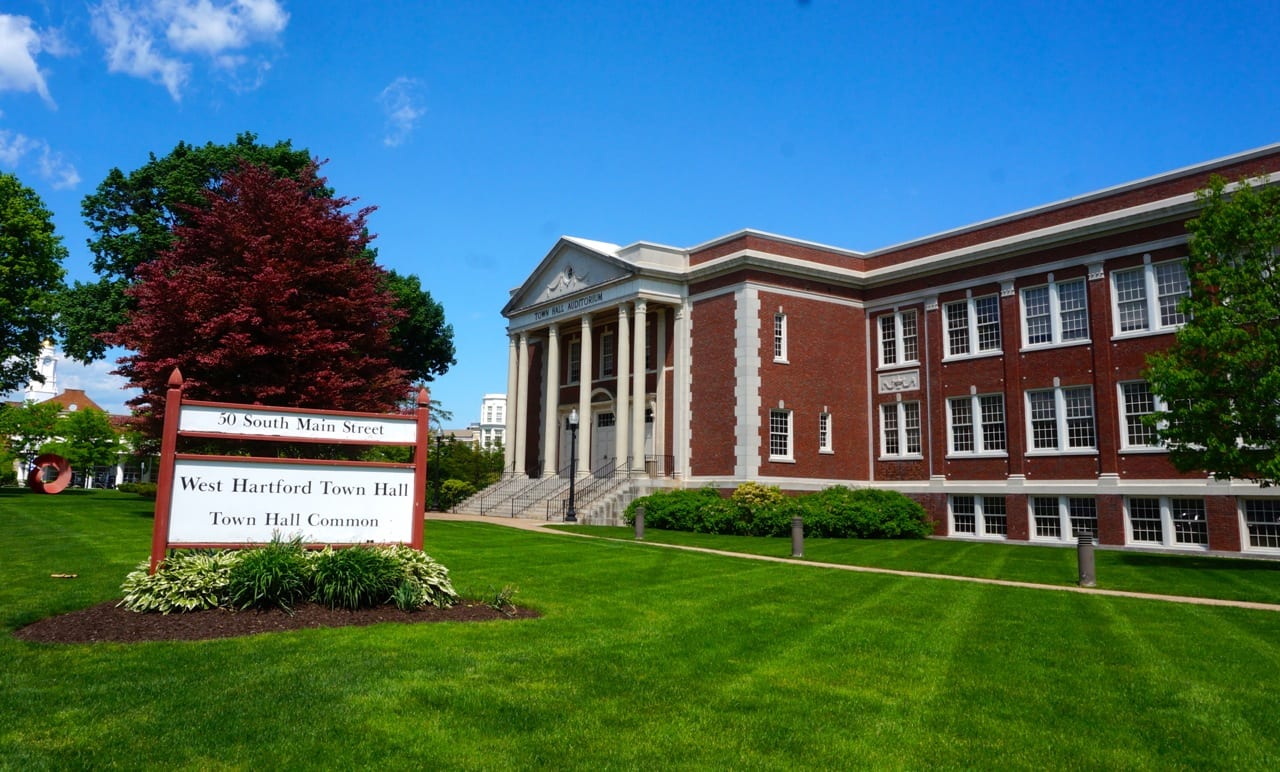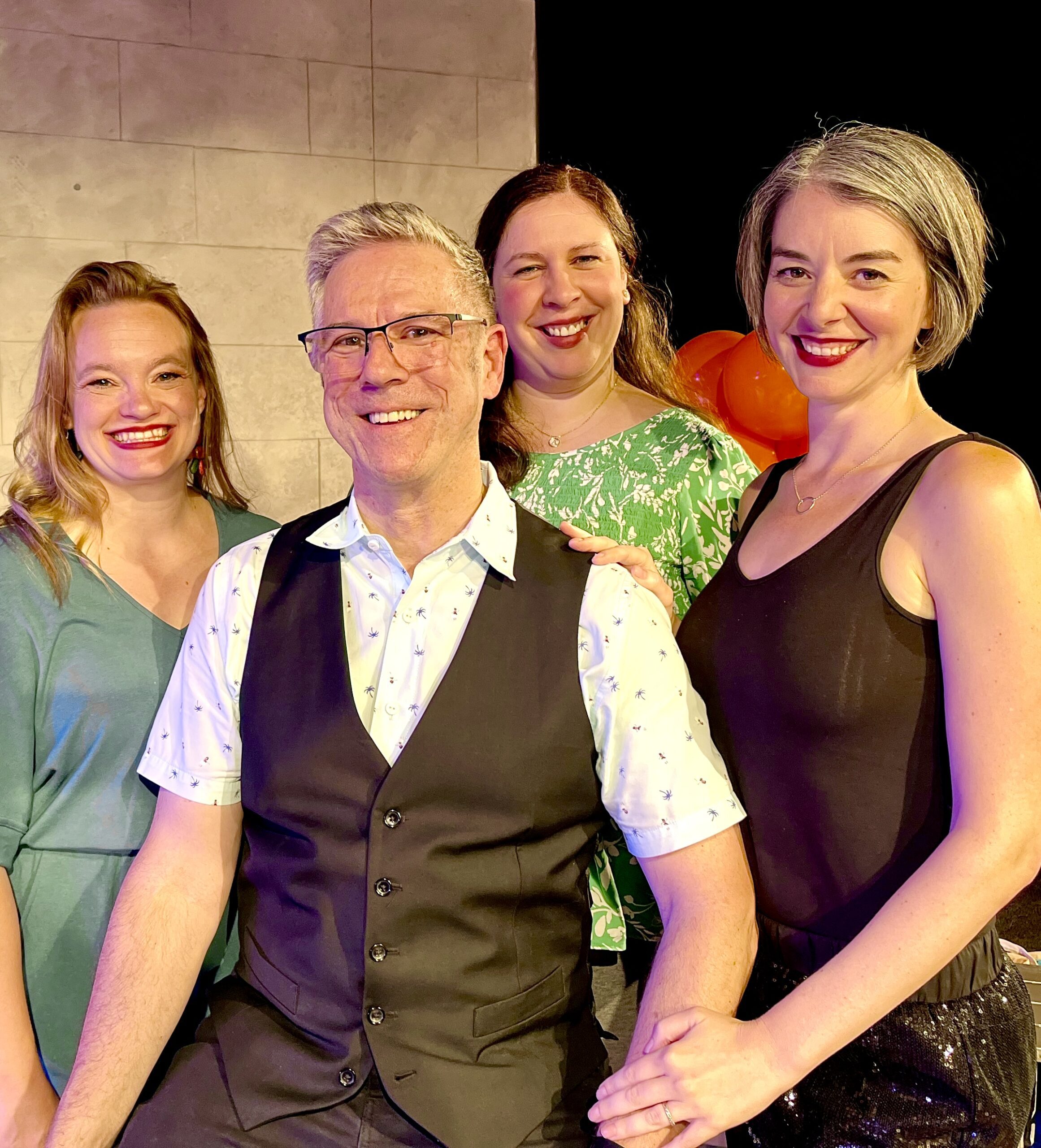West Hartford Town Council Asks Legislature to Expand Absentee Ballot Voting

Audio By Carbonatix

West Hartford Town Hall. Photo credit: Ronni Newton
At its meeting on June 9, the West Hartford Town Council approved a resolution requesting that voting by absentee ballot be expanded for not just the August primary but also for the November and future elections.
By Ronni Newton
The West Hartford Town Council held multiple discussions about a resolution asking the legislature to expand absentee ballot voting, and solicited public input during a meeting of the Special Advisory Committee on Social and Community Recovery before passing the measure on June 9 by a vote of 7-1 with one abstention.
“The history of voting rights is one that is intermixed with the history of race in this country,” Democratic Town Council member Ben Wenograd said at the June 9 meeting, which also followed several emotional yet peaceful Black Lives Matter protests in West Hartford.
Wenograd said that voting, which is so fundamental to our democracy, is constantly under attack. When there was a snafu at one of the West Hartford polling places a few years ago and people had to wait, they were outraged.
Town residents take voting seriously, and West Hartford has been recognized with the Democracy Cup multiple times for election turnout, he said. The town also consistently has one of the highest rates of absentee ballot voting.
The state constitution currently permits the use of absentee ballots only due to “absence from the city or town of which they are inhabitants or because of sickness, or physical disability or because the tenets of their religion forbid secular activity.”
Gov. Ned Lamont’s Executive Order 7QQ expands the use absentee balloting for the Aug. 11 primary, and that change was made using his authority under the existing public health emergency, a declaration which runs through Sept. 9.
Lamont’s executive order expands the definition of “because of sickness” to not pertain to just personal illness but to also include “because of the sickness of COVID-19.”
“This particular resolution does not solve all our societies woes but it does go in the right direction in ensuring the voters of West Hartford, CT, are able to exercise their constitutional rights in the simplest way possible,” Wenograd said.
“Our right to vote is a right,” Republican Lee Gold, the Town Council’s minority leader, said. “We need to promote voting rights and ensure all citizens can be part of this process. … Representative government is an essential keystone.”
Gold did not originally support the resolution, but said he wanted to receive more public input, and after hearing from the community, and reviewing a detailed presentation from Corporation Counsel Dallas Dodge, said he believes the state is “behind the curve” in allowing mail-in voting.
Gold said he represents not only Republicans but also Democrats and those who are independent or unaffiliated, and added, “I know it is my obligation and duty to vote in favor of this resolution.”
Democrat Liam Sweeney said he thinks it’s important for the town to officially express its support for the resolution and doesn’t know why it should be so complicated to update a policy that is so old-fashioned.
Republican Chris Williams, who ultimately abstained from the vote, said he is concerned that the town is stepping outside the municipal realm with this resolution. He has previously opposed the town adopting a resolution on statewide issues such as tolls and gun safety as well.
Williams said that while the first page of the absentee ballot resolution addresses the COVID-19 pandemic, he has concern that the resolution is broader, “using the pandemic as a basis to expand.” In Florida, where a large number of people use mail-in voting “it’s always a mess down there,” he said.
Republican Mary Fay cast the lone dissenting vote, and while she said she absolutely believes in the right to vote and doesn’t think she has ever missed an election, said, “I don’t think we’re there yet. She expressed concern about the mail-in process, even if only a handful of votes were incorrect.
“I don’t think that we should be proposing resolutions on state law,” Fay added.
Carol Blanks, a Democrat, said that voting rights are “very sacred to the Black and brown community.”
Blanks said she has lost many people, of all ages, to the COVID-19 pandemic, and safety is of utmost concern.
“This is an area where you just can’t mess around. … If it’s in our ability to keep people safe that’s what we should do,” Blanks said.
“I couldn’t agree more with you … that this issue is one that needs to be discussed at this table and needs to be transmitted to our legislative delegation,” Deputy Mayor Leon Davidoff said.
Because of the coronavirus, many people remain afraid to go out in public, and should not be forced into a situation that could be a risk to their health and safety, he said.
The “right to vote, right to select your representative government is paramount for our democracy,” Davidoff said. “Change begins with us and it begins with elected officials here and now.”
This is a very serious issue, he said, and “I think that we need our voices to be held at the legislative level. It’s no surprise that the people of West Hartford take their civic responsibilities very seriously. … Your vote is your voice and I’m not going to stand in the way of telling people I don’t respect that.”
Connecticut is one of the five most restricted states in the country when it comes to absentee ballot voting, Mayor Shari Cantor said, and two-thirds of the states have no restrictions on mail-in voting.
“I think this is fundamentally a local issue, it’s a public health issue,” she said.
Cantor said as an example, her niece works in a hospital, 12-hour shifts from 7 a.m.-7 p.m., on a floor where she is treating COVID-19 patients. She would not legally be able to obtain an absentee ballot in Connecticut because she is not away from the town for all hours of voting. However, without taking a day off she could also not likely make it to the polling places in time, safely changed out of her hospital scrubs.
We have taken so many precautions, Cantor said. “Time is of the essence; let’s give people the tools to vote.”
The decision to expand absentee balloting rests with the General Assembly, which adjourned this year’s session in May and has not yet announced details about meeting in special session. A permanent change to the state’s constitution to permit “no excuse” absentee balloting is a lengthy process that would ultimately require approval by popular vote, but the legislature can, as the governor has done for August, expand the definition of “sickness” as a reason to allow vote by absentee ballot.
The resolution passed by the West Hartford Town Council states to the General Assembly that “there are many reasons other than illness or physical absence that may make it difficult for an elector to vote in person, including work schedules and childcare needs,” and note that absentee voting is a proven method of secure voting.
It also states that “government should do everything in its power to maximize participation in elections and improve voter access.” The COVID-19 pandemic has highlighted the need for the expansion of absentee balloting, the resolution states, which is permitted in roughly two-thirds of states.
At the Special Advisory Committee meeting on June 1, six residents spoke in favor of the resolution, including Carol Mulready who spoke on behalf of the League of Women Voters of Greater Hartford, noting that the organization is in favor of ensuring the ability of all citizens to accessible voting.
Several seniors, who are concerned about going to the polls amid the COVID-19 pandemic because their age puts them at greater risk, and others who are immunocompromised, also shared their support for the resolution with Special Advisory Committee members,
Jim Chapdelaine said that he is turning 66 and is a seven-time cancer survivor. “I don’t want to miss an election … I never have missed one,” he said. In addition to worrying about personally going to the polls, he’s concerned that other family members could contract the virus if they needed to vote in person, and that would also create a risk to his health.
As it stands now, Samathan Dynowski told the Special Advisory Committee, “If you do request an absentee ballot for something that is not allowable it is a felony … and no one wants to be in that position for their health.”
The governor is calling for the legislature to meet in special session to address absentee balloting, as well as police accountability and other issues.
Last week, The Connecticut Mirror reported that two Republican state legislators, Sen. Eric Berthel of Watertown and Rep. Jason Perillo of Shelton are among a group suing to block Secretary of the State Denise Merrill’s plan to allow people potentially at-risk from COVID-19 to use absentee ballots in this November’s election.
Like what you see here? Click here to subscribe to We-Ha’s newsletter so you’ll always be in the know about what’s happening in West Hartford! Click the blue button below to become a supporter of We-Ha.com and our efforts to continue producing quality journalism.



